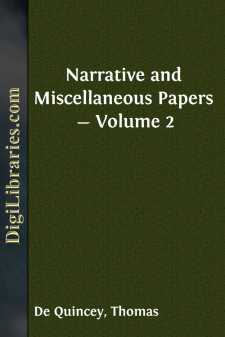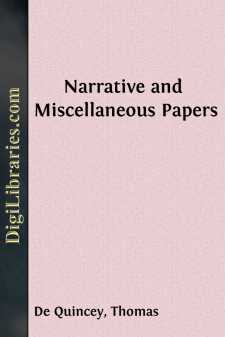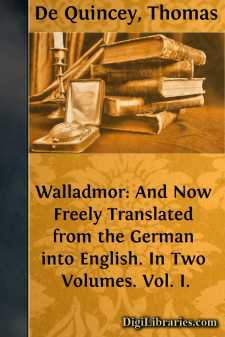Categories
- Antiques & Collectibles 13
- Architecture 36
- Art 48
- Bibles 22
- Biography & Autobiography 813
- Body, Mind & Spirit 142
- Business & Economics 28
- Children's Books 14
- Children's Fiction 11
- Computers 4
- Cooking 94
- Crafts & Hobbies 4
- Drama 346
- Education 46
- Family & Relationships 57
- Fiction 11829
- Games 19
- Gardening 17
- Health & Fitness 34
- History 1377
- House & Home 1
- Humor 147
- Juvenile Fiction 1873
- Juvenile Nonfiction 202
- Language Arts & Disciplines 88
- Law 16
- Literary Collections 686
- Literary Criticism 179
- Mathematics 13
- Medical 41
- Music 40
- Nature 179
- Non-Classifiable 1768
- Performing Arts 7
- Periodicals 1453
- Philosophy 64
- Photography 2
- Poetry 896
- Political Science 203
- Psychology 42
- Reference 154
- Religion 513
- Science 126
- Self-Help 84
- Social Science 81
- Sports & Recreation 34
- Study Aids 3
- Technology & Engineering 59
- Transportation 23
- Travel 463
- True Crime 29
Memorials and Other Papers - Complete
Description:
Excerpt
VISIT TO LAXTON.
My route, after parting from Lord Westport at Birmingham, lay, as I have mentioned in the "Autobiographic Sketches," through Stamford to Laxton, the Northamptonshire seat of Lord Carbery. From Stamford, which I had reached by some intolerable old coach, such as in those days too commonly abused the patience and long-suffering of Young England, I took a post-chaise to Laxton. The distance was but nine miles, and the postilion drove well, so that I could not really have been long upon the road; and yet, from gloomy rumination upon the unhappy destination which I believed myself approaching within three or four months, never had I weathered a journey that seemed to me so long and dreary. As I alighted on the steps at Laxton, the first dinner-bell rang; and I was hurrying to my toilet, when my sister Mary, who had met me in the portico, begged me first of all to come into Lady Carbery's [Footnote: Lady Carbery.—"To me, individually, she was the one sole friend that ever I could regard as entirely fulfilling the offices of an honest friendship. She had known me from infancy; when I was in my first year of life, she, an orphan and a great heiress, was in her tenth or eleventh."—See closing pages of "Autobiographic Sketches."] dressing-room, her ladyship having something special to communicate, which related (as I understood her) to one Simon. "What Simon? Simon Peter?"—O, no, you irreverend boy, no Simon at all with an S, but Cymon with a C,—Dryden's Cymon,—
"That whistled as he went for want of thought.'"
This one indication was a key to the whole explanation that followed. The sole visitors, it seemed, at that time to Laxton, beside my sister and myself, were Lord and Lady Massey. They were understood to be domesticated at Laxton for a very long stay. In reality, my own private construction of the case (though unauthorized by anything ever hinted to me by Lady Carbery) was, that Lord Massey might probably be under some cloud of pecuniary embarrassments, such as suggested prudentially an absence from Ireland. Meantime, what was it that made him an object of peculiar interest to Lady Carbery? It was the singular revolution which, in one whom all his friends looked upon as sold to constitutional torpor, suddenly, and beyond all hope, had kindled a new and nobler life. Occupied originally by no shadow of any earthly interest, killed by ennui, all at once Lord Massey had fallen passionately in love with a fair young countrywoman, well connected, but bringing him no fortune (I report only from hearsay), and endowing him simply with the priceless blessing of her own womanly charms, her delightful society, and her sweet, Irish style of innocent gayety. No transformation that ever legends or romances had reported was more memorable. Lapse of time (for Lord Massey had now been married three or four years), and deep seclusion from general society, had done nothing, apparently, to lower the tone of his happiness. The expression of this happiness was noiseless and unobtrusive; no marks were there of vulgar uxoriousness—nothing that could provoke the sneer of the worldling; but not the less so entirely had the society of his young wife created a new principle of life within him, and evoked some nature hitherto slumbering, and which, no doubt, would else have continued to slumber till his death, that, at moments when he believed himself unobserved, he still wore the aspect of an impassioned lover....












